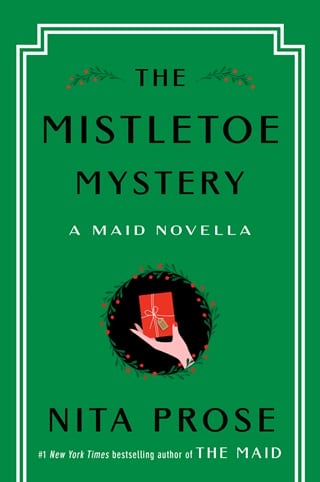Chapter 3
Once upon a time, long, long ago, my gran recounted her rendition of a fairy tale featuring a princess and a frog. In her tale, a princess was sipping tea by a pond when her favorite gold-rimmed cup slipped from her hands. She watched in dismay as it glug-glugged down into the murky water, disappearing from sight. But no sooner did it sink than it reappeared on the shoreline in front of her, the delicate handle held awkwardly in the mouth of a muddy, misshapen frog.
“Did you retrieve that for me?” the princess asked the shiny amphibian.
“Yes,” the frog croaked. “I’ve been watching you from these shorelines since I was but a tadpole. You are special. And kind. I would do just about anything for you. Here, take the cup. I know it’s your favorite.”
Ignoring the grime—though, to be clear, the princess loathed grime in all its myriad forms—she leaned forward and was about to kiss the frog’s cheek in thanks, but before she could follow through, she heard a voice behind her.
“Don’t touch that vile thing!” the voice commanded. “It’s revolting.”
She turned to see her betrothed, a strikingly handsome prince, standing by the edge of the pond, arms crossed, a petulant sneer on his thin lips.
“Are you coming with me, or would you rather roll in the muck with that repugnant creature?” he asked.
Gran paused in her story then, and for the life of me I could not understand why.
“What did the princess do next?” I prompted.
“She went with the prince,” Gran said. “And by doing so, she made the single biggest mistake of her life.”
“Why was it a mistake?” I asked. “The frog was covered in mud. He was filthy and vile. The amphibian was clearly a bad match for the princess.”
“Was he?” Gran asked. “The frog was helpful and generous, willing to do anything for that princess, including wade through the mud for her. That frog had been watching out for the princess her entire life. Not everything is as it seems, Molly. We must learn to see past the grime, for what’s beyond it may shine more brightly than any light you could possibly imagine. Remember that.”
At the time, I could not quite grasp what Gran was getting at. Dirty versus clean, frogs versus princes, right versus wrong—it all swirled together in my head. “What happened to the princess afterwards?” I asked.
“Predictably, the handsome prince left her for a prettier princess. And when she returned to the pond to seek out the frog, he was gone.”
My heart sank as she revealed the tragic ending, a rarity in Gran’s stories. “But, Gran, this is such a sad tale.”
“It is,” she replied. “But it’s only one chapter, with many yet to come.”
“What’s the moral of the story?” I asked.
“That a princess must discern wisely. Only this way will she ever be able to spot the difference between a frog and a prince.”
“Molly? Molly? Are you listening?” asks Juan.
I’ve spiraled again, tunneling in my mind to a past that no longer exists. I’m having such a lovely time with Juan—right now, in the present. We’re sipping hot chocolate from a pretty holiday stall set up on the sidewalk. I want to stay in the moment, and yet the past drags me under, miring me in silt from long ago.
Yesterday’s the past, tomorrow’s the future, but today is the gift.
“I’m so sorry, Juan,” I say. “What were you saying?”
“I was saying, we’ve got our tree now. What if we pop into that jewelry store, the one on the corner? Maybe I’ll find something for my mother. A necklace? Or a pendant?”
“But you mailed her a Christmas gift already,” I say.
“I did. But it was small, almost nothing, really. Look at that,” says Juan as he stops by a placard in front of the jewelry store. On the poster is a giant diamond bracelet on a woman’s thin wrist.
“Diamonds are forever. This Christmas, give her the gift she really wants,” Juan says, reading the slogan from the placard. “What do you think? Is that the gift she really wants?”
“It most certainly is not, ” I say. What Juan has failed to notice is the fine print at the bottom of the poster, which I’ve actually read before on my way to this very store a few days ago. Gran always taught me to read the fine print very carefully. “Juan, do you realize that bracelet costs over ten thousand dollars?”
Juan squints at the poster, scanning the fine print for himself, our Charlie Brown tree quivering beneath his arm. “But the money’s due in installments. That makes it better, no?”
“It doesn’t matter!” I say. “What man would be daft enough to spend that much on a frivolity? You’d have to be a fool.”
“A fool, yes. You’d have to be,” says Juan as he takes a deep breath, then slings his free arm around my shoulder. “Oh, Molly. Sometimes, I love you so much, I worry I might go soft in the head. They say love makes people crazy.”
“Please keep your wits about you. What use would you be without them?” I say as I pinch one of his cheeks. “Do you still want to go into the store?” I ask.
“No,” he replies. “Let’s just go home.”
 Fullepub
Fullepub 



